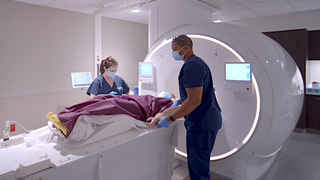Our team of hundreds of leading cancer physicians and oncology-trained support staff is a trusted partner in returning patients with cancer to good health.
Gynecologic Cancer
New Patient Appointment or 214-645-4673
MedBlog
Results: 4 Locations
Gynecologic Oncology Clinic
at Cancer Care Outpatient Building 6202 Harry Hines Blvd., 4th FloorDallas, Texas 75235 (214) 645-4673 Directions to Gynecologic Oncology Clinic at Cancer Care Outpatient Building, Dallas Parking Info for Gynecologic Oncology Clinic
Hematology and Medical Oncology
at UT Southwestern Harold C. Simmons Comprehensive Cancer Center at Moncrief Cancer Institute 400 W. Magnolia AvenueFort Worth, Texas 76104 817-288-9700 Directions to Hematology and Medical Oncology at UT Southwestern Harold C. Simmons Comprehensive Cancer Center at Moncrief Cancer Institute, Fort Worth Parking Info for Hematology and Medical Oncology
Simmons Cancer Center
at UT Southwestern Medical Center at Richardson/Plano 3030 Waterview Parkway, 2nd FloorRichardson, Texas 75080 972-669-7077 Directions to Simmons Cancer Center at UT Southwestern Medical Center at Richardson/Plano, Richardson













